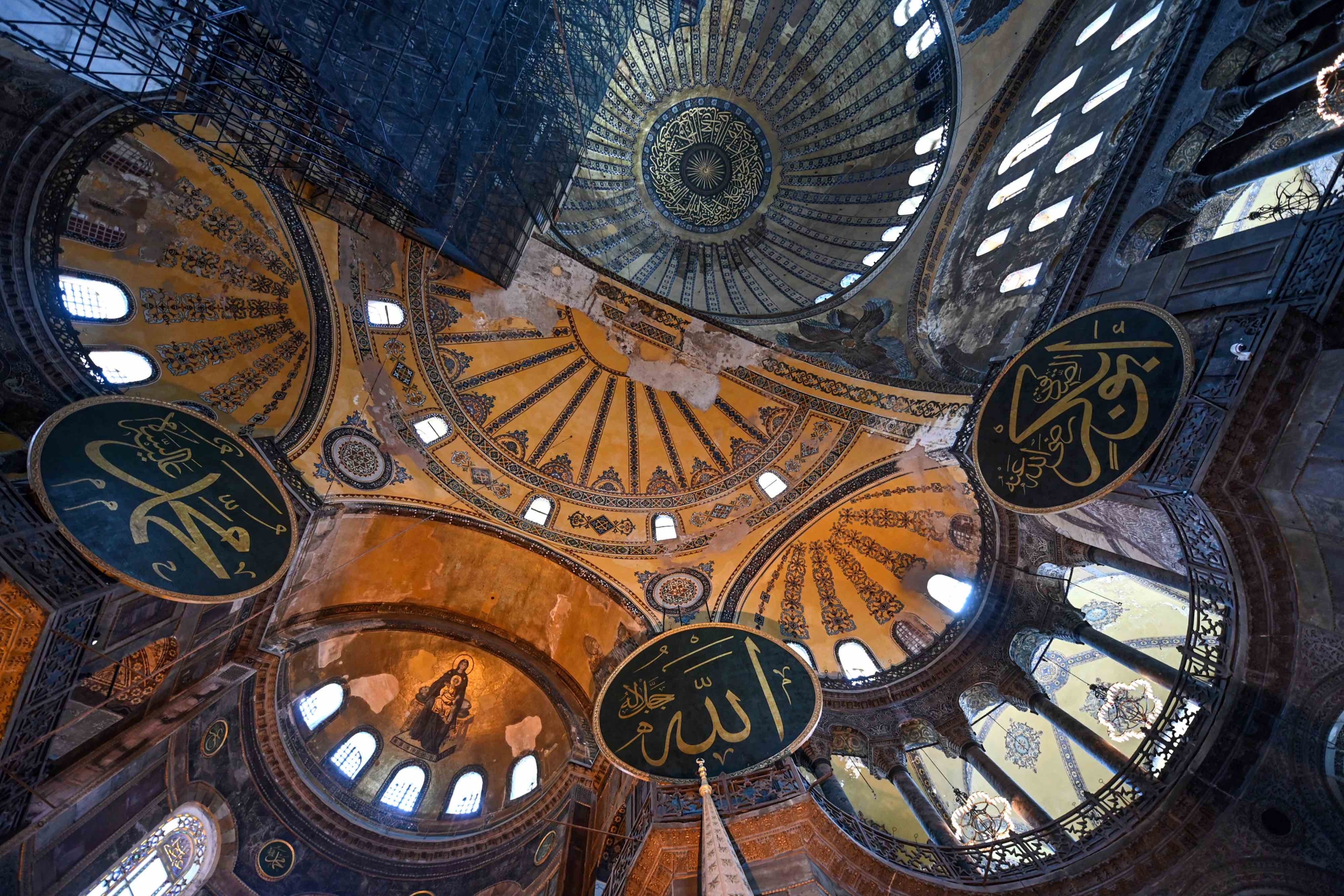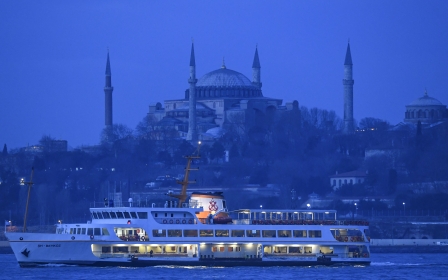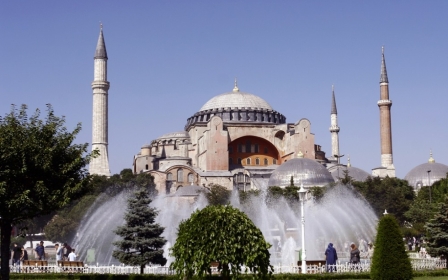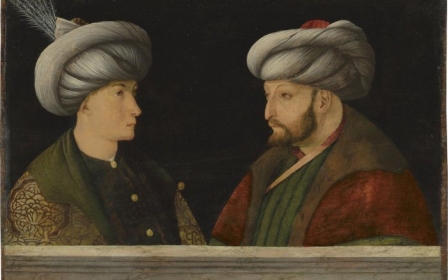Hagia Sophia: Turkey court hears case amid calls to preserve it as a museum

Turkey's administrative court has held a 15-minute hearing to decide whether to open the way for the conversion of the Hagia Sophia into a mosque and will issue its verdict within 15 days by law.
The Council of State on Tuesday heard from the representatives of an association that sued the government for converting the Hagia Sophia into a museum in the 1930s through a cabinet decision, which was signed by Mustafa Kemal Ataturk, the founder of modern Turkey.
The association, called the Permanent Foundations and Service to Historical Artefacts and the Environment, argues that the building was endowed as a mosque under Mehmed II, the conqueror of Istanbul, who owned the property.
Since last year, Turkish President Recep Tayyip Erdogan has backed the idea to transform the building into a mosque in several speeches, in an attempt to satisfy his conservative Muslim base, which has always seen Ataturk’s decision as catastrophic.
Haberturk daily said that a lawyer for the Turkish presidency sided with the association during the hearing.
The prosecutor, however, said the building’s status was changed by a cabinet decision and the presidency had relevant powers to overturn the decision. “The case must be dismissed. The cabinet decision was in line with the rule of law at the time. The issue is within the president’s discretion,” he said, according to Turkish media reports.
Last year, the Council of State ruled that the Chora Church building in Istanbul was endowed as a mosque under special legal circumstances during the Ottoman Empire, and that it was the state’s responsibility to preserve its intended status as a mosque.
Erdogan could publish a simple presidential decree to resolve the issue but due to international condemnation, such as US Secretary of State Mike Pompeo’s call to maintain the building as a museum, his government prefers to share the burden with the court.
Even if the court cancels the cabinet decision, Erdogan's government still needs to take the actual step to make the necessary changes in the building to open it to public prayers.
Some commentators in Turkey believe that the Council of State’s decision would coincide with 15 July, the anniversary of the coup attempt in 2016, which has since been celebrated as a national holiday to commemorate the “heroic” resistance by the people against those who carried out the putsch.
Several surveys indicate that the move to convert Hagia Sophia is popular among citizens across the party lines, however a plurality - 43.8 percent according to the latest poll by Metropoll conducted in June - believes the government is using the issue to distract the public from deteriorating economic conditions.
Erdogan has in the past rejected calls to convert the museum into a mosque, but since 2016, he has endorsed symbolic steps to reintroduce Islamic practices into the building.
In 2016, the government allowed the recitation of the Islamic call to prayer inside the building and later assigned an imam to a small chamber where people have been allowed to pray since 1991.
In 2017, Turkey’s Directorate of Religious Affairs, known as Diyanet, held a religious ceremony to celebrate Laylat al-Qadr, one of the holiest nights in Islam, inside the museum.
Last May, the Turkish government celebrated the 567th anniversary of the Ottoman conquest of Istanbul with an Islamic prayer at the former mosque.
Hagia Sophia, a Unesco world heritage site, was originally built as a Greek Orthodox church. It was converted into a mosque after the conquest of Istanbul by Mehmed the Conquerer in 1453, celebrated every year on 29 May.
In 1935, Hagia Sophia was converted into a museum by Ataturk as part of his secularist reforms.
The Greek Orthodox Church traces its history to the Byzantine empire and its patriarch is still based in Istanbul, which was formerly known as Constantinople.
Middle East Eye propose une couverture et une analyse indépendantes et incomparables du Moyen-Orient, de l’Afrique du Nord et d’autres régions du monde. Pour en savoir plus sur la reprise de ce contenu et les frais qui s’appliquent, veuillez remplir ce formulaire [en anglais]. Pour en savoir plus sur MEE, cliquez ici [en anglais].




